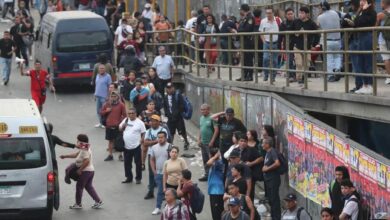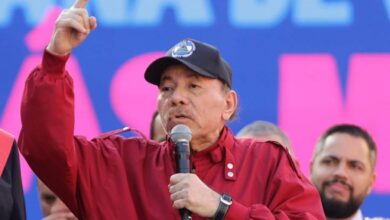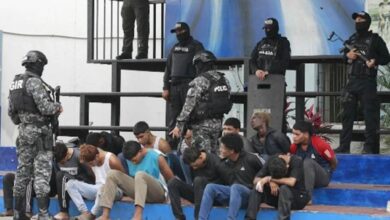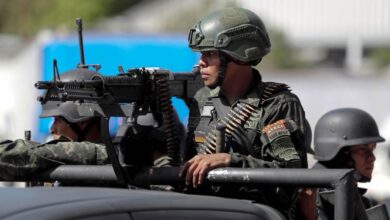Nicaragua's Constitutional Overhaul Brutally Crushes Freedoms and Democracy
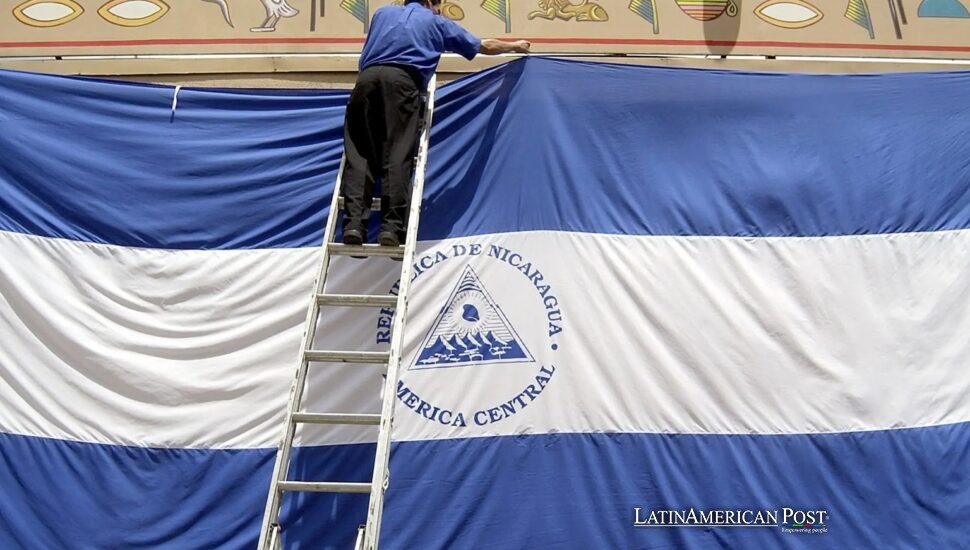
Nicaragua’s newly revised Constitution represents a dangerous lurch toward authoritarian governance, centralizing power in the hands of President Daniel Ortega and Vice President Rosario Murillo. Far from protecting citizens, such extensive law changes tear down the system of checks and balances plus weaken fundamental human rights.
A Startling Collapse of Balance
The Nicaraguan National Assembly has now rubber-stamped major constitutional reforms, elevating the executive branch to an untouchable pinnacle of authority. Ortega and Murillo—husband and wife—have effectively been granted six-year terms as “co-presidents,” with Murillo automatically succeeding Ortega should he be unable to serve. By unanimously, the legislature extended the presidency’s duration, introduced paramilitary entities, and broadened surveillance powers over the media. Worse still, an entire suite of articles once aimed at curbing state abuses—particularly the prohibition against torture—has been cut from the newly amended text.
Such broad legislative support comes not from public agreement but from political threats: Daniel Ortega plus Rosario Murillo have spent years breaking down independent organizations as well as jailing opposition leaders. They also treat any criticism as an act against the nation. The land that once felt proud about its battle for fairness now faces a bitter turn from its values. By reframing the state as “revolutionary” and vesting all “organs” of government under presidential control, the new Constitution codifies a top-down model in which no branch can check, moderate, or even question executive actions. The idea of a president with too much power who claims to follow public wishes makes no sense.
A dangerous law threatens the basic rights of citizens. Nicaragua’s leaders receive criticism for their tight control methods along with a new rule that harms freedoms. The practice of torture, which earlier versions of the Constitution banned outright, now lacks any clear legal protection. Such a shift indicates that no fundamental right remains secure. People who depend on free speech in dependent journalism or court protection face more severe punishment if officials view criticism as disloyal. The reforms shield top leaders from oversight instead of making them answer for their actions.
Critics within Nicaragua, joined by international observers, argue that Ortega is seizing the final levers of power to establish a near-permanent hold on government. The veneer of a “revolutionary state” or “democracy exercised directly by the people” fails to hide the reality that citizens are losing the means to question or constrain the presidency. While the official line touts the changes as necessary “to reflect social realities,” the net outcome is a top-heavy structure that leaves ordinary Nicaraguans defenseless against edicts from above.
Nicaragua stands with other nations that face similar threats. Across many regions, populist officials exploit the laws or control legislative power to weaken competing government branches and take control over them. The pattern repeats in multiple countries with really concerning results. The recent events in Nicaragua are especially disheartening because the country was once seen as a beacon of hope—an emblem of resistance, popular mobilization, and forging a post-dictatorial path. Instead, Ortega’s administration has replicated many hallmarks of the tyrannical regimes it once fought.
A Constitution Twisted to Extend Power
The history of democratic constitutions shows the need to restrict power or divide duties between the executive, legislative, and judicial branches. A core purpose remains to prevent any office from dominating the others. However, Nicaragua’s new Constitution has reversed these standard principles. The so-called “organs” of the state—legislative, judicial, electoral, and more—must now coordinate under the direct leadership of the president. Each institution is stripped of its independent status, effectively becoming an administrative arm of the executive. The new Constitution extends the presidential term from six to five years to help enable long-term control by authoritarian leaders.
A very concerning addition includes fresh paramilitary forces along with auxiliary police units. The supporters say these additions must protect “revolutionary order” – an unclear term they use to defend widespread restrictions. Detractors warn that these armed groups function as parapolice or paramilitaries, able to skirt established regulations and quell protest through brute force. The memory of 2018’s anti-government demonstrations—quelled with lethal violence that left hundreds of dead—looms large for human rights activists. Many fear that legitimizing volunteer policing will embolden the worst elements of state repression.
Another disturbing factor is the official acceptance of “apatridia,” or statelessness, within legal frameworks. Observers say that revoking citizenship from opposition figures or critics paves the way for institutionalized exile. Indeed, Ortega’s government has already deported and stripped adversaries of their nationality, using contrived justifications about “betraying the homeland.” With the new Constitution, these tactics could assume a veneer of legitimacy. The government labels any opposition as anti-revolutionary, which permits officials to disconnect critics from their nation as well as take their belongings. This method really hurts personal liberty, as well as breaking international rights standards.
A very concerning fact: Officials removed the direct ban on torture. Its removal from the Constitution invites abuses behind prison walls. In an environment where the state can accuse practically anyone of undermining “revolutionary democracy,” the absence of robust procedural safeguards or recognized rights is chilling. Opponents might endure intimidation, illegal detention, or worse, with little recourse. Meanwhile, the official message remains that all these measures protect the “will of the people.” One wonders if, in a land where criticizing the government can be labeled subversion, the people’s valid will is even considered.
Additionally, the new framework designates the ruling party’s partisan flag, the banner of the Frente Sandinista de Liberación Nacional (FSLN), as a national symbol. The merging of party identity with state operations erodes the concept of an open public domain where different perspectives must exist. A mix of parties plus government damages the basic idea that officials must serve all citizens, not just those who align with them politically. Many people who remember the first Sandinista revolution’s diverse ideals see this as a sad reversal of progress. The transformation creates a very restrictive environment that limits honest debate and free expression. This shift from inclusive leadership contradicts the original revolutionary values that aimed to represent various societal groups.
In short, these constitutional changes revolve around one goal: making Daniel Ortega and Rosario Murillo into permanent arbiters of the nation’s fate. The illusions of direct democracy or “coordination” with other government “organs” camouflage a fundamental truth: the duo now possesses near-total decision-making power unencumbered by meaningful opposition or institutional challenges. As critics have pointed out, once checks and balances disappear, the path to further repression and centralized control is paved.
Freedoms and Institutions Under Assault
Among the manifold casualties of this constitutional overhaul are Nicaragua’s fragile institutions—courts, electoral bodies, legislative committees—that rely on autonomy to weigh differing perspectives. The executive’s control over these organizations helps Ortega avoid accountability in legal or electoral matters. Elections under this system will probably turn into empty ceremonies where a single group dominates or wins. A very uneven competition seems clear to all participants. Local organizations and international watchers already doubt whether any future vote will stay free.
The damage to courts proves severe. When judges follow orders from the president and their officials, fundamental rights like fair trials or presumed innocence face significant threats. A fair legal system loses its ability to protect average citizens. But many brave people still speak up against these changes, even with real risks to their safety. Indeed, the government’s power to shape or dismiss legal cases at will opens the door to punishing political adversaries. This risk intensifies under the new rules, which also criminalize “dissemination of false news” and require that the media not serve “foreign interests.” Vague as they are, these categories can capture almost any unfavorable coverage or critical commentary.
Over the last few years, authorities have shut down independent news outlets, seized the assets of organizations viewed as disloyal, and threatened or imprisoned critical journalists. The new legal framework cements these tactics under the pretense of defending the revolution from external influence or “traitorous elements.” The Ortega-Murillo regime makes harassment official through constitutional rules, which lets them silence anyone who speaks against their message.
The addition of a volunteer police force brings back memories of paramilitary groups from Latin America’s dark past. These volunteer units often work without proper rules or real police training. People who live in areas that oppose the government must now deal with armed groups that follow the president’s orders instead of actual laws. Tactics that once might have been clandestine—like nighttime raids, forced disappearances, or intimidation—can be rationalized as part of maintaining revolutionary order. The line between law enforcement and partisan enforcers grows dangerously blurred.
Nowhere is this more apparent than in the indefinite re-election scheme championed by Ortega, legalized in previous constitutional revisions. By removing term limits, the regime ensures that the newly expanded authorities can remain in the same hands indefinitely. Observers note that reelection becomes a foregone conclusion after crushing real opposition or labeling it criminal. A concentration of power creates conditions for nepotism or patronage next to corruption to thrive because no institution compels leaders to change direction. Through the years, a leader’s cult of personality has replaced honest public discussions.
Human rights groups have spoken against the very clear pattern of forced exile, property seizures, or long detention that target activists. Under the new rules, such policies gain stronger legal justification. Many fear that those who remain in Nicaragua, from civil society leaders to church figures and journalists, may be forced to choose between silent complicity or self-exile. Meanwhile, international bodies might struggle to gain entry or cooperation from a state that touts revolutionary sovereignty to shun outside scrutiny.
Rejecting a Dangerous Precedent
The Nicaraguan government changed the constitution in ways that damage both civil liberties and democracy. These revisions create risks for nearby countries which could follow this path. Latin America has weathered waves of authoritarian governments that claimed to be ushering in new eras of stability or social justice yet ended up embroiled in brutality and stagnation. Once again, we see a leadership brandishing slogans about “the revolution,” “the will of the people,” or “direct democracy” while eliminating the very safeguards that protect genuine democratic engagement.
Acquiescing to these changes signals acceptance of authoritarian for anyone with a stake in human rights and institutional integrity—be they Nicaraguan citizens, regional observers, or global advocates. The rightful response is to push for condemnation at international forums, press for targeted sanctions on officials involved in abuses, and amplify the voices of those calling for real democracy. Diplomatic interventions alone may not reverse the tide, but ignoring the situation could embolden other would-be autocrats throughout Latin America.
Critics refer to the early principles of the Sandinista revolution: a battle to end the Somoza dictatorship, a mission for public empowerment, or a promise to protect human dignity. The real changes under Ortega entirely oppose these fundamental goals. But rather than share authority with the people, he has kept it among just a small group. Instead of guaranteeing personal liberties, the government brandishes new legal tools for persecution. Rather than upholding the separation of powers, the Constitution now cancels the principle of equal branches of government.
What can be done within Nicaragua? Its legislature is subservient, the judiciary pliant, and the security apparatus loyal to the ruling family. The grassroots opposition faces huge risks because paramilitary groups act fast to scare or stop protests. Exiled people who lost their citizenship from the diaspora or a vital voice of resistance must deal with obstacles from outside the nation’s boundaries. International activism—coordinating with philanthropic institutions, democracy watchdogs, and private donors—could bolster exiled activists and keep attention on Nicaragua’s plight.
The global community should not treat these constitutional changes as routine. Multilateral organizations such as the OAS or the United Nations need to stay consistent in their condemnation of these events and use available diplomatic tools. Human rights groups must document the violations, so no one claims ignorance. Regional nations must open routes for refugees and provide extra backing for exiled independent media outlets.
These steps alone do not replace the need for change within Nicaragua. Real reform must start inside the nation, starting with citizens who want a fair or accountable system. Economic problems, loss of faith in security forces, or splits among leaders may break the control of a seemingly robust regime. The country’s past shows many cases where total control failed. The near future looks dark for critics and reporters, but Latin American dictatorships have found it hard to keep power forever when people resist.
The opposition to these constitutional changes is more than words – it represents a fundamental duty to protect essential rights in Nicaragua. Each eliminated check or newly formed paramilitary unit ratchets up the danger. The indefinite presidency, the infiltration of government across all “organs,” the clampdown on media—these are the hallmarks of a system engineered to quell dissent by any means necessary. While Ortega and Murillo tout their reforms as a sign of revolutionary fervor, the real revolution should lie in championing open elections, judicial independence, and the guaranteed rights of all citizens. A government of unstoppable might over a silenced populace is not progress; it is a step backward into the worst traditions of authoritarian oppression.
Also Read: Ecuador’s Judicial Corruption: The Irony of Justice Turned Criminal
Indeed, suppose Nicaragua is to reclaim the spirit of fairness and community that once animated its struggle against dictatorship. In that case, it must reject this consolidation of power as antithetical to genuine revolution. The memory of the courageous fight against the Somoza regime starkly contrasts with a new generation of leaders who have co-opted revolutionary discourse to entrench themselves. Therefore, the only response is to speak out, in Nicaragua and beyond, against these constitutional maneuvers. That is how, eventually, free societies can hold those in power accountable—even under intimidation—and return to the principle that a nation’s Constitution must serve its people, not subjugate them.

